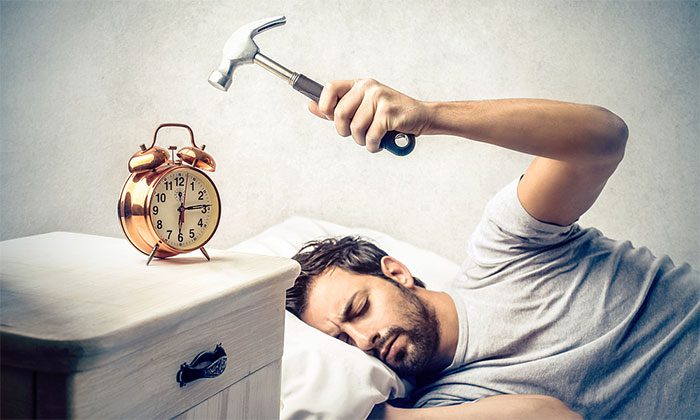Waking up early isn’t always beneficial for the body, especially when you’ve stayed up too late. Your body, not having had enough rest, is forced to be alert and start working.
To understand the detrimental effects of staying up late and waking up early, Life Times (China) conducted an interview with experts Dr. Guo Xiheng (Head of the Respiratory and Intensive Care Department at Chaoyang Hospital, Beijing) and Dr. Shi Ming (Head of the Sleep Department at the Shanghai TCM Archive Center).
Waking Up Too Early After a Late Night is as Harmful as Staying Up Late

Waking up early isn’t always good!
Waking up early is different from the concept of “waking up too early” and not getting enough sleep. If you go to bed at 10 PM and wake up fairly early the next morning, that is normal. It indicates you have good sleep quality. However, if you haven’t slept enough and have to wake up early, the effects can be just as harmful as staying up late.
Waking up too early can lead to sudden interruptions in sleep, which may cause dizziness upon waking. Healthy sleep must first align with the physiological needs of the human body.
Waking up too early after a late night can result in three detrimental effects:
Increased Irritability
The aforementioned experts suggest that waking up too early can lead to higher cortisol levels in the body. This hormone is associated with stress. That’s why those who wake up too early are more prone to muscle pain, headaches, and irritability.
Noticeably Poor Skin
Lack of sleep, combined with insufficient rest, increases cortisol production, leading to excessive oiliness and acne on the skin. Insufficient sleep can also accelerate cellular aging and lower immunity, which further speeds up the aging process.
Increased Risk of Sudden Death
There is a saying: “Staying up late is equivalent to committing suicide.” This is particularly true for those who sleep only 2-3 hours a day, as their risk of sudden death is higher. If the body does not get enough rest, the brain’s nerves become very fragile, making sudden cardiac arrest more likely. According to Lisa Cottrell (a psychologist at Aurora Health Care): “Lack of sleep and chronic sleep deprivation can activate the sympathetic nervous system, affecting the cardiovascular system, weakening immune responses, and metabolism.”
How Do Long-Living People Sleep?
Sleep has been proven to be extremely important, as it is part of daily life and helps the body reboot after a tiring day. It’s no coincidence that sleep accounts for one-third of a person’s lifetime.
Researchers from the University of California, Los Angeles found that even one night of insufficient sleep can cause cells in the body to age faster. Lack of sleep not only leads to early skin aging but also increases the risk of diabetes, cardiovascular diseases, and depression.
Therefore, a person should sleep at least 7 hours each day to maintain a healthy body. The best bedtime is 10 PM, waking up at 6 AM. If you consistently sleep after 11 PM, this means your sleep duration during the day will be shortened. Furthermore, this is also the time when internal organs carry out detoxification functions, and staying up late means these organs won’t work efficiently.



















































